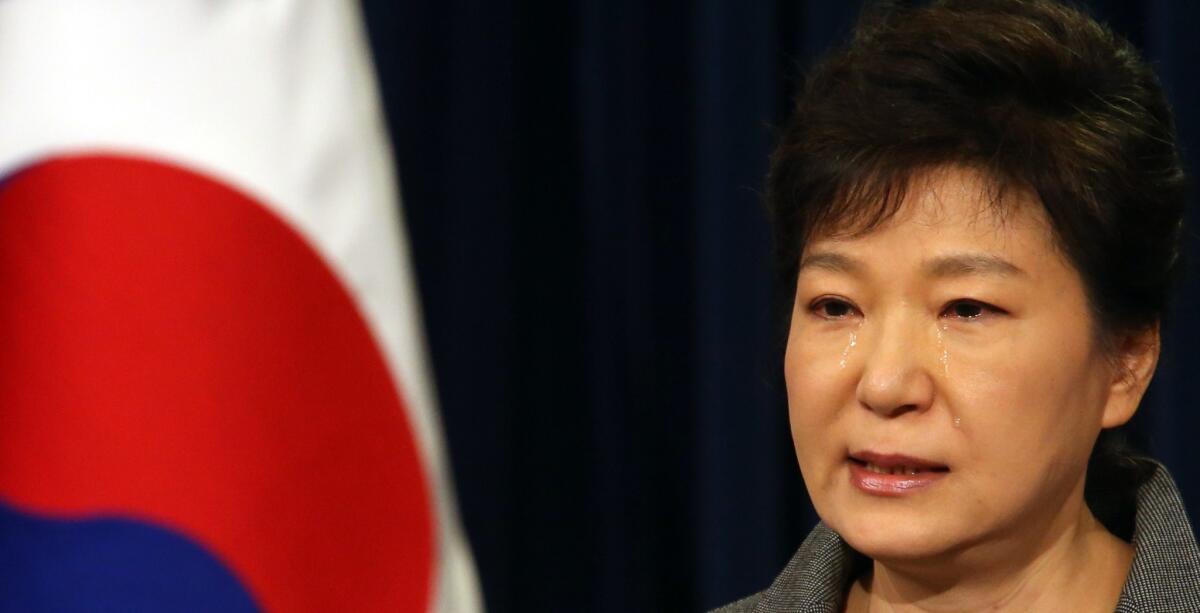South Korean president to disband coast guard over ferry response

- Share via
Reporting from Seoul — South Korean President Park Geun-hye announced Monday that she would disband the coast guard because of its inept efforts to rescue those stranded aboard a sinking ferry, which left more than 300 people dead or missing, mostly high school students.
Bowing, Park apologized twice, saying as president she is “ultimately responsible” for the disaster, which has triggered outpourings of anger and grief throughout South Korea.
The president had apologized before, but this was the first time she had addressed the nation on television since the ferry Sewol sank last month.
The coast guard and other government agencies have come in for particularly pointed criticism for their slow and ineffective response in the early stages of the sinking. When the Sewol first sent out distress signals on the morning of April 16, miscommunication between the coast guard and maritime traffic control authorities caused delays in dispatching rescue vessels.
“The coast guard failed to fulfill its duties in the Sewol disaster,” Park said. “The number of casualties could have been greatly reduced had it been more assertive in responding.”
She said the coast guard’s disaster response duties would be transferred to a new safety agency under the national government to allow for closer oversight and to ensure that regulations and disaster-response protocols are followed. Excessive cargo is suspected as a possible cause of the sinking.
Park gave no timetable for the transition.
The president’s eyes filled with tears as she read the names of the passengers and crew members who lost their lives after reportedly staying on the ship to help passengers get out.
Last week, the ferry captain and 14 crew members were indicted on charges of homicide and negligence for fleeing the ship on the first rescue boats, before passengers had been evacuated.
South Korean law stipulates that the captain must remain aboard a distressed vessel until all passengers have been rescued.
Park described the Sewol sinking and its fallout as having left “wounds that will be difficult to remove.” More than a month later, government buildings throughout Seoul are still draped with banners that read, “We are sorry,” expressing official contrition for the tragedy.
At memorial sites across the country, citizens have tied yellow ribbons and left written condolences for the dead. A number of music festivals have been canceled out of respect for grieving families, and crowds have refrained from singing at live sporting events.
Borowiec is a special correspondent.
More to Read
Sign up for Essential California
The most important California stories and recommendations in your inbox every morning.
You may occasionally receive promotional content from the Los Angeles Times.










